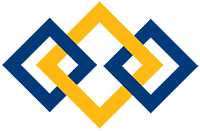COURSE OVERVIEW
This course focusses on giving a basic introduction about the implementation of PAT tools in the (bio)pharmaceutical industry.
This course is given in an interactive manner (both theoretical and hands-on) and can be divided into two separate modules:
Module 1: Basic course: Introduction to PAT (1-day module)
&
Module 2: Basic data-analysis and modeling (1.5-day module)
Requirements
Basic understanding of spectroscopy and (bio)pharmaceutical processes
&
Basic understanding of coding and programming (python)
MODULE 1: BASIC COURSE: INTRODUCTION TO PAT
Theoretical
The trainee will get a general introduction to PAT and the common (non-)spectroscopic sensors, learning how, when and where these tools can provide a benefit.
Spectroscopic sensors
&
Non-spectroscopic sensors (Univariate/Multivariate)
&
Hyperspectral imaging
&
PAT in R&D/Process Validation/QbD
&
Regulatory aspects
&
Multivariate data-analysis
Practical
The trainee will get the chance to see how PAT tools can be used/implemented and how this translates in a practical approach to acquire relevant process information.
Some of the tools that will be demonstrated are:
NIR
&
Raman
&
FLIR
Target audience
People with no experience/expertise in the topic
&
People that want a refreshment on the basic principles
MODULE 2: BASIC DATA-ANALYSIS AND MODELING
Theory through practice
Using spectroscopic data, the teacher will go through different aspects of PAT and model development together with the attendee.
General introduction to Python
&
Data preparation and exploration
&
Introduction to modeling
&
Process control based on PAT
Target audience
People with no experience/expertise in the topic
&
People that want a refreshment on the basic principles
COURSE PROGRAM
A detailed overview of the different modules can be found in the following document.
If you are interested in taking this course, please email sarah.costers@ugent.be or mgadbruy.debruyne@ugent.be.


